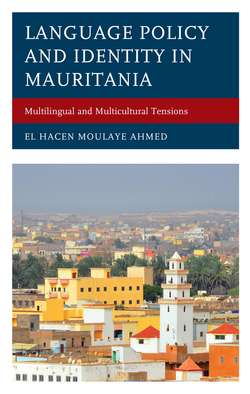Language Policy and Identity in Mauritania

Реклама. ООО «ЛитРес», ИНН: 7719571260.
Оглавление
El Hacen Moulaye Ahmed. Language Policy and Identity in Mauritania
Отрывок из книги
Language Policy and
Identity in Mauritania
.....
A reflection of the debate bred taxonomy of bi/multilingualism and diglossia. However, the supposed neutrality of diglossia and multilingualism which were devised as means of national development and stability were called into question since historical inequalities and conflicts did not diminish. The selection of indigenous people’s languages that could function in particular domains beside the colonizers’ languages perpetuated socioeconomic asymmetries between the societies of one nation rather than omitting them (Ricento, 2000, p. 16). Such orientation led to the persistence of the colonizers’ languages because they were codified and adequate for education and other governmental institutions, observed Ricento (2006, p. 12). Omitting nuance, for the sake of rough generalization, one can observe that most of the early scholars saw language diversity as an obstacle to state-building. Extending this observation, Ferguson (2006) asserted that the early people who were involved in language policy, in the spirit of earlier European nationalists, used to consider language diversity as primarily a problem, and thus a hindrance to state-building. Therefore, the thrust of policy was to identify and select a language or few languages for official uses (p. 10). Scholars reduced sociolinguistic complexity to two languages or handy proportions of languages (Blommaert, 1996, p. 212).
The second stage, final stage, which started from the end of the second phase up to the present time, witnessed a move to broaden the scope of language policy. The scholars of this stage, who are postmodernists and human right activists, sought to provide alternative framework to language policy that the scholars of the first stage, who represented different schools, structuralism, pragmatism, poststructuralism, modernism, and critical linguistics, failed to present. The classification goes in line with that of Ricento (2000) who divided the stages of language policy intellectually into three stages. The scholars shifted from the processes of language standardization, codification, and selection limitation to the standards which were associated with the state-building, though still important, to “language revitalization, minority rights, globalization, and the spread of English, the preservation of linguistic diversity, and bilingual education” (Ferguson, 2006, p. 10). Indeed, typical example would be the works of Ferguson (2006) and Kaplan and Baldauf (1997).
.....